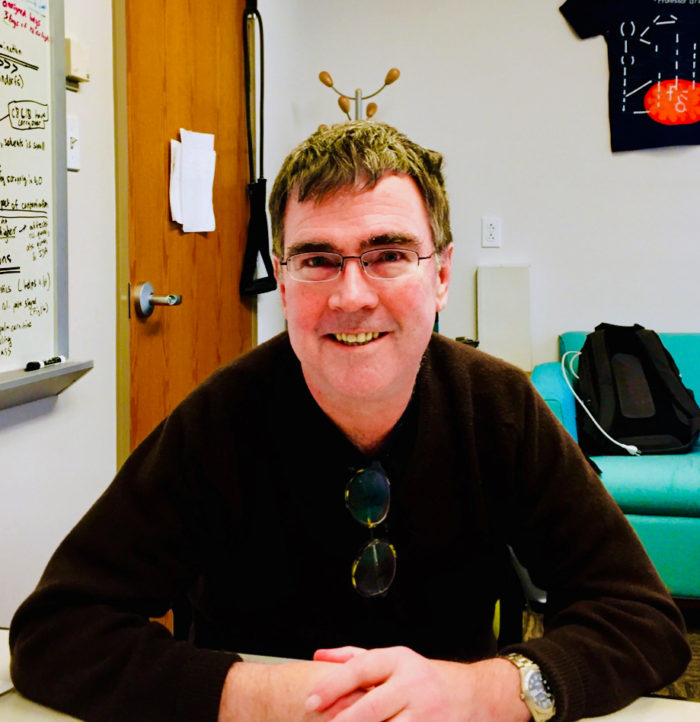Obituary: Stephen L. Johnson, professor of genetics, 56
Leader in zebrafish genetics was known for studies of tissue regeneration, organ development

Johnson
Stephen L. Johnson, PhD, a leader in the field of zebrafish genomics and a professor of genetics at Washington University School of Medicine in St. Louis, died at his home on Dec. 15, 2017, after a long struggle with rheumatoid arthritis. He was 56.
Johnson served in national leadership positions and on multiple committees charged with guiding the development of zebrafish as an important research model, similar to fruit flies and mice. With transparent embryos, zebrafish are ideal for studying growth and development.
Johnson’s studies of zebrafish have shed light on how tissues regenerate and how organisms control the size of their organs. He was particularly interested in understanding cells called melanocytes, which are best known for governing skin pigmentation and are the cell type affected in the deadliest form of skin cancer, melanoma. Johnson developed methods to track the fate of these cells as they develop from the early embryo to the adult zebrafish.
“Steve was a highly regarded scientist in our department — well-known for his keen intellect, quick wit and dedication to science,” said Jeffrey D. Milbrandt, MD, PhD, the James S. McDonnell Professor and head of the Department of Genetics. “Steve served as a wonderful and engaging mentor, providing sage advice to many junior faculty members, postdocs and graduate students. He was honored with multiple School of Medicine mentoring awards for his dedication to training scientists. Many of his trainees have gone on to become leaders in their fields. He was a passionate and prolific scientist and collaborator.”
Johnson earned a bachelor’s degree in chemistry and molecular biology at Vanderbilt University, followed by a doctoral degree in genetics from the University of Washington, Seattle. He continued postdoctoral training at the University of Oregon before joining the Washington University faculty in 1996.
Johnson held several influential roles at the School of Medicine, including serving on the Developmental Biology Program Steering Committee, the Molecular Genetics Program Steering Committee, the Graduate Admissions Committee and the Distinguished Faculty Awards Committee. Among his honors, the National Neurofibromatosis Foundation named him a Leslie V. Gates Young Investigator; he received a PEW Scholars Award; and he was recognized for excellence in graduate mentoring.
Johnson served on the editorial boards of the journals Genome Research and G3: Genes|Genomes|Genetics. His work was supported by the National Institutes of Health (NIH) and the Howard Hughes Medical Institute, among others.
Johnson is survived by his sister, Susan C. Johnson; his brother, Lee Johnson; and several nieces.
A scientific symposium will be held to celebrate his life in early fall 2018.






